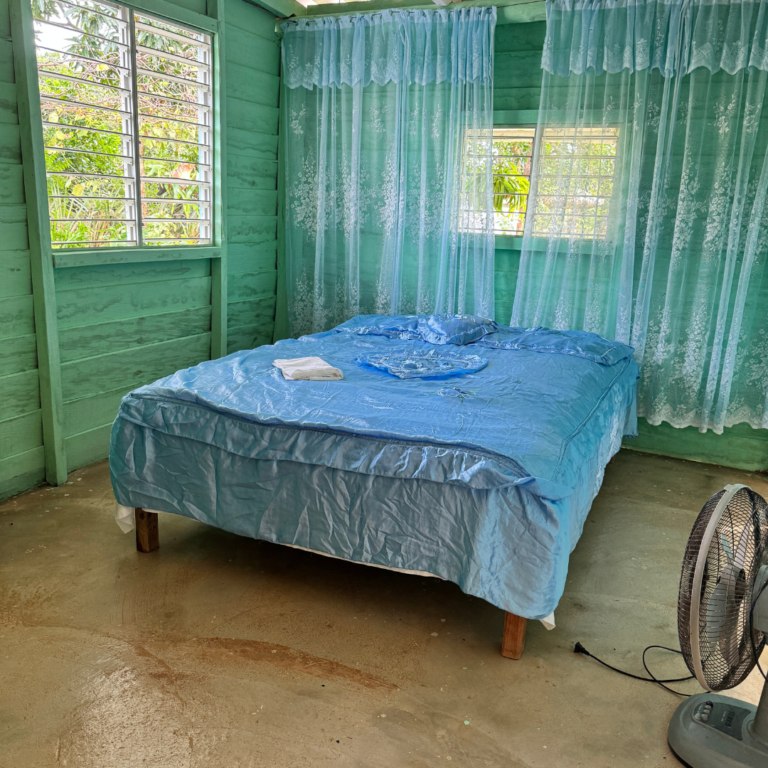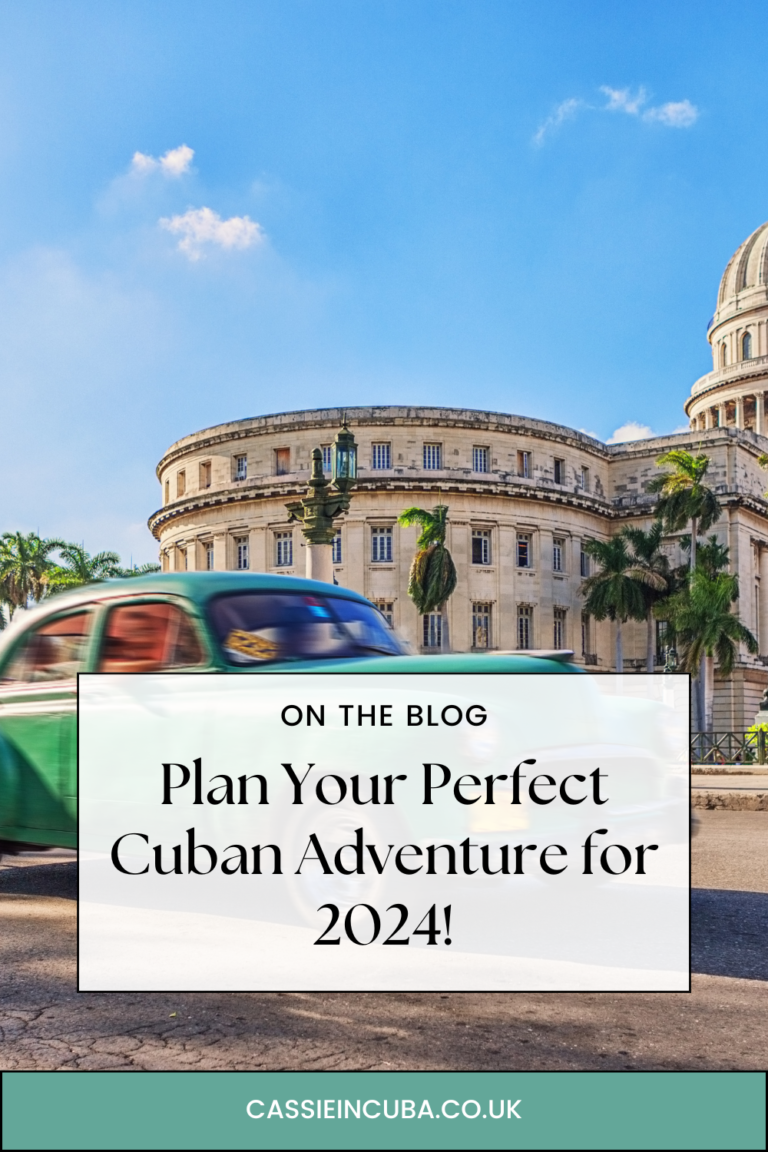
Ethical Tourism in Cuba: The Truth About Airbnb & Sustainable Travel
Ethical Tourism & Gentrification in Cuba
Ethical tourism isn’t just about being a ‘good traveller’ – it’s about making conscious choices that don’t actively contribute to gentrification. That means reconsidering where you stay: no chain hotels, not always going to the viral Instagram/Pinterest-style boutique homes, and really, no Airbnb.
Cuba is in a strange place right now. Unlike other destinations with large-scale foreign investment, Cuba has low-level foreign investment, where ownership is often tied to marrying a Cuban or using legal loopholes. This has shifted the dynamics of local tourism in a way that many travellers don’t realise.

The Airbnb Effect: How It Changed Cuba’s Tourism Industry
The whole concept of Airbnb-style homestays? Cuba had that long before Airbnb ever showed up. Let that sink in.
When Airbnb officially launched in Cuba in 2015, it didn’t introduce anything new — it simply digitised an already existing tradition. But in doing so, it also changed the landscape. Gentrification picked up, low level foreign investment grew, and now, less and less of that tourism money is landing directly in the hands of everyday Cubans.
When I came to Cuba the first time in 2016, renting out a room was something almost any Cuban with a decent home could do. Now? It’s not so simple. It’s no longer just about opening your home to travellers — you need money. Not just for the basics of a house like before, but for the aesthetics of it. Thanks to changing expectations (partly driven by foreign investment, but also by global travel trends), casas now need to be Pinterest-worthy, Instagrammable, ‘boutique’ — all things that many locals simply can’t afford to keep up with.
Beyond that, you need reliable internet (expensive and unreliable in Cuba) and the marketing power & knowledge to actually get bookings. This shift isn’t just about foreign investors — it’s about how the industry as a whole has evolved in Cuba. And while investment has helped modernise parts of the rental scene, it’s also made it harder for the Cubans who originally built it to stay in the game. What used to be simple, personal, and accessible has turned into a business of privilege, and the ones who started it — the Cuban families who opened their homes long before Airbnb — now face an uphill battle.
When Airbnb officially launched in Cuba in 2015, it didn’t introduce anything new — it simply digitized an already existing tradition.

How to Travel Cuba Sustainably & Ethically
And so, if you care about ethical travel and want to support Cuban-owned businesses – and actually this is mandatory if you’re coming from America – here’s what you can do:
1. Stay in Locally Owned Casas
Some Airbnb listings in Cuba are foreign-owned, which contributes to gentrification and pushes prices up for locals. Prioritize casas owned by Cubans, even if they’re not as ‘Pinterest/Instagram-worthy’.

2. Book Directly When Possible
Many casas have WhatsApp or email for direct bookings, meaning hosts keep all of the earnings instead of Airbnb taking a cut, or foreign business abroad receiving your money and giving pennies to the host.
Booking directly is easier than ever thanks to social media (they often put their numbers in their bios) and Google Translate – don’t let language barriers put you off.
3. Respect the Community, Culture & Laws
Many Cubans live in shared spaces with family, so be mindful of noise and local customs.
If there’s a power cut – don’t blame your host. They will do everything in their power to make you as comfortable as possible. Unfortunately Cubans (outside of Havana) have been living with extreme power-cuts for months on end. You only experience it for an average two-night stay, and you can go out to a restaurant with a generator because you have money in your pocket.
Sexual tourism: firstly, please don’t engage in it actively. If you do happen to find a romance, you are not allowed to bring them back to your accommodation. Your casa particular will only allow those registered to immigration to enter their casa, and they likely will not agree with registering your new boyfriend/girlfriend, should they have bad intentions. You will need to rent another room – there are rooms for this sort of thing, your partner will know how and where.
Debunking Airbnb Myths
Ok, so you like Airbnb because it’s convenient. You can pay online, you feel like you have ‘more security,’ and you don’t have to carry cash. I get it, I do. But let’s break this down:
- “You can pay online, so it’s easier.” But where is your money actually going? 9 times out of 10, it’s not going to Cuba, nor to the host. It’s going to someone managing the listing abroad, sending minimal CUP to the host on the ground.
- “Airbnb is more secure.” Says who?
- Scams still exist. Fake listings, double bookings, and off-platform payment requests happen.
- Less personal accountability. Direct bookings often mean more trust and personal connection between guests and hosts. Many Cuban casa owners go above and beyond for their guests—something that isn’t always the case with Airbnb.
- Limited host protection. Airbnb’s “AirCover” isn’t always easy to claim—especially in Cuba—leaving hosts out of pocket if something goes wrong.
- “I don’t want to carry a lot of cash.” Everyone — EVERYONE — is bringing thousands of dollars in cash to Cuba. Not just you. Cuba is an almost entirely cash economy. It’s how things work. It’s normal – even though you don’t feel normal about it.
So, use your common sense:- Bring the cash, and bring extra for emergencies.
- Use the safe in your room.
- Wear a money belt when out.
- When travelling between accommodations, hire a reliable car & driver that you can trust to not steal or scam.
Cuba is about going back to basic in many ways. Carrying cash is just part of the experience. See it that way, and you’ll get along just fine.
Final Thoughts
Sustainable travel in Cuba isn’t about avoiding comfort – it’s about making choices that keep tourism fair and accessible for locals, and support and uplift the local community and economy.
If you truly want to experience Cuba the right way, stay in locally owned casas, book direct when possible, and think about where your money is actually going. Consider what your travelling style might contribute to gentrification
It’s not just about having an ‘authentic’ experience – it’s about making sure Cuba’s tourism industry remains in Cuban hands.
NEED MORE HELP?
Planning a trip to Cuba is overwhelming, there’s no doubt about that. But don’t fret – that’s why I’m here!
I am an epic trip planner, there’s no doubt about it and I will toot my own horn. I bring you authentic, unforgettable experiences that you can only get if you know someone on the inside – hello it’s me! From personalised itineraries to all my local connections (friends & family!) and hidden gems, I’ll make sure your journey is seamless and rich with Cuban culture.
When you choose me to help you plan your Cuba trip, you’ll not only have fun, but also immerse yourself in the local culture. You’ll experience the real Cuba through authentic interactions with locals, gain insights from their stories, and navigate your visa requirements with ease.
Did you find this post interesting or useful? I’d love for you to support me and share it.
Pin and save this blog post for later

